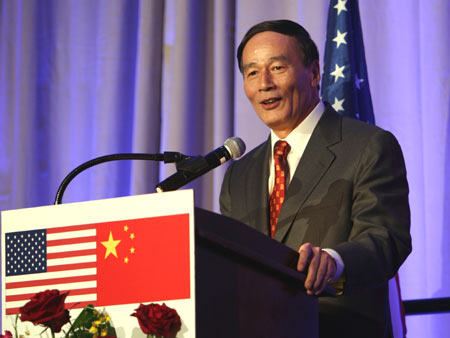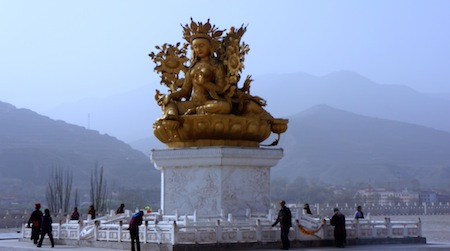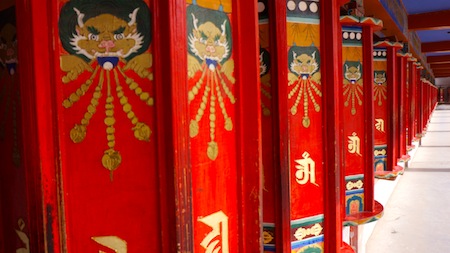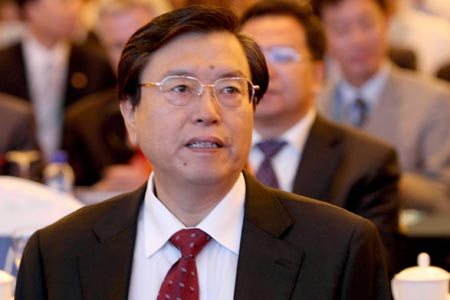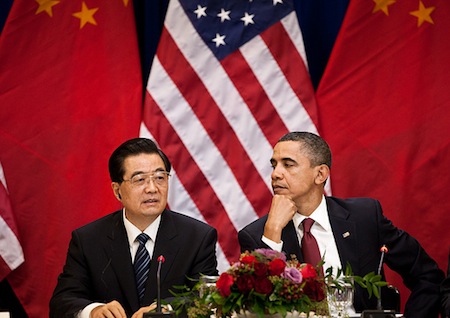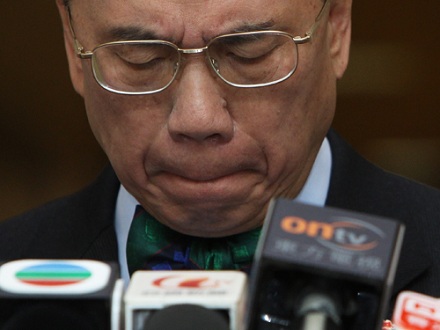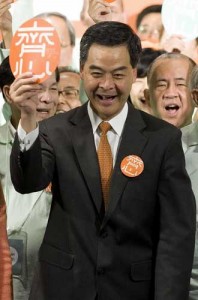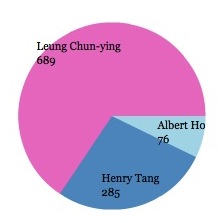This is the fifth in a series of posts examining the Chinese leaders expected to be named to the Politburo Standing Committee during the 18th National Congress of the Chinese Communist Party (中国共产党) that kicked off November 8. Prior installments on Zhang Gaoli here, Zhang Dejiang here, Liu Yunshan here and Yu Zhengsheng here.
Of all the potential new members of the Politburo Standing Committee, no one has a more assured spot than Wang Qishan (王岐山), who is expected to be the economic policy supremo of the next generation of leadership of the People’s Republic of China.![]()
The only question is whether he’ll be elevated to executive vice premier under the likely new PRC premier, Li Keqiang (李克强), which had seemed likelier earlier in the summer and autumn, but now seems more uncertain, according to party sources.
The Congress concluded on Wednesday, with the Politburo Standing Committee members to be named today or tomorrow.
Wang, age 64, has served as the vice premier for economic, energy and financial affairs since 2007, when he became a Politburo member as well.
Previously, from 1989 to 1997, he was vice governor, then governor of the China Construction Bank, one of the world’s largest banks and indeed one of the world’s largest corporations. As vice governor of Guangdong province in 2007, he was instrumental in the liquidation of the Guangdong International Trust and Investment Company, which, according to Robert Lawrence Kuhn in How China’s Leaders Think, signaled to the world that China was serious about developing market mechanisms that could bring discipline to the financial sector.
As such, he developed keen ties with former leader Jiang Zemin (江泽民), but his real patron among the older leadership is Jiang’s former premier, Zhu Ronghi (朱镕基), who, before his elevation to the premiership in 1998, served as vice premier and as the governor of China’s central bank (Wang served a brief stint as vice governor there as well).
Wang served as the Party chairman of Hainan province — the tropical island at the south of the Chinese mainland that stylizes itself as China’s Hawaii — from 2002 to 2003. Hainan is, itself, an interesting story of Chinese internal growth — formerly part of Guangdong province until 1988, China’s leaders separated Hainan as its own province and designated it a ‘special economic area.’ Despite being seen as something of an economic backwater for centuries, its economy has grown in leaps and bounds, even by Chinese standards, in the past decade, and China hopes to transform it into an international tourism destination within the next decade.
He thereupon served as the mayor of Beijing from 2003 to 2007 and handled much of the preparation for the city’s hosting of the 2008 Summer Olympics.
Kuhn reports that Wang is a humorous and sophisticated rising star:
When the Olympics was approaching, a distinguished American financier asked for [Wang’s] business card. “You won’t need my card,” Wang, then Beijing mayor, said with a smile. “If the Olympics is successful,” he joked, “I’ll be too high to help you — and if it’s not successful, I won’t have a phone!”
Wang, perhaps more than Li, China’s current ‘paramount leader,’ president and Party general secretary Hu Jintao (胡锦涛) or the expected new Chinese leader, Xi Jinping (习近平), is at ease with the international media — check out his interview with U.S. secretary of state Tim Geithner and Charlie Rose. So Wang will likely have a major role to play in U.S. foreign relations as well, especially given the key economic issues involved in the U.S.-China relationship.
Named to the Time 100 in 2009, Wang was greeted with glowing praise from former U.S. treasury secretary Henry Paulson: Continue reading Fifth Generation: Who is Wang Qishan?
